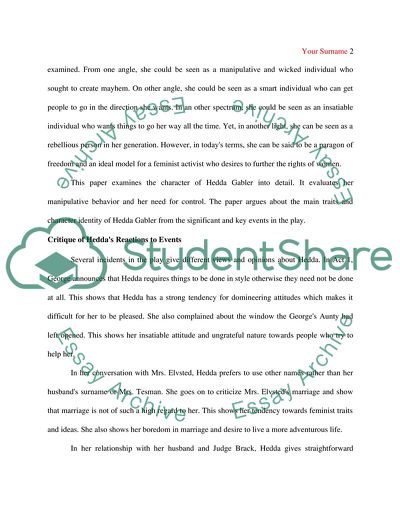Cite this document
(“Analysis of Hedda Gabler Essay Example | Topics and Well Written Essays - 2500 words”, n.d.)
Analysis of Hedda Gabler Essay Example | Topics and Well Written Essays - 2500 words. Retrieved from https://studentshare.org/literature/1595939-analysis-of-hedda-gabler
Analysis of Hedda Gabler Essay Example | Topics and Well Written Essays - 2500 words. Retrieved from https://studentshare.org/literature/1595939-analysis-of-hedda-gabler
(Analysis of Hedda Gabler Essay Example | Topics and Well Written Essays - 2500 Words)
Analysis of Hedda Gabler Essay Example | Topics and Well Written Essays - 2500 Words. https://studentshare.org/literature/1595939-analysis-of-hedda-gabler.
Analysis of Hedda Gabler Essay Example | Topics and Well Written Essays - 2500 Words. https://studentshare.org/literature/1595939-analysis-of-hedda-gabler.
“Analysis of Hedda Gabler Essay Example | Topics and Well Written Essays - 2500 Words”, n.d. https://studentshare.org/literature/1595939-analysis-of-hedda-gabler.


